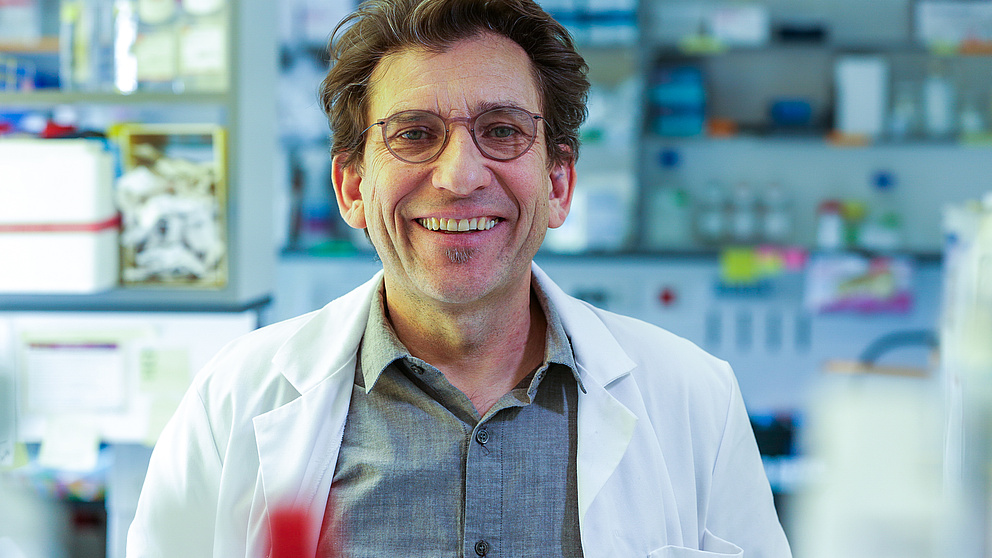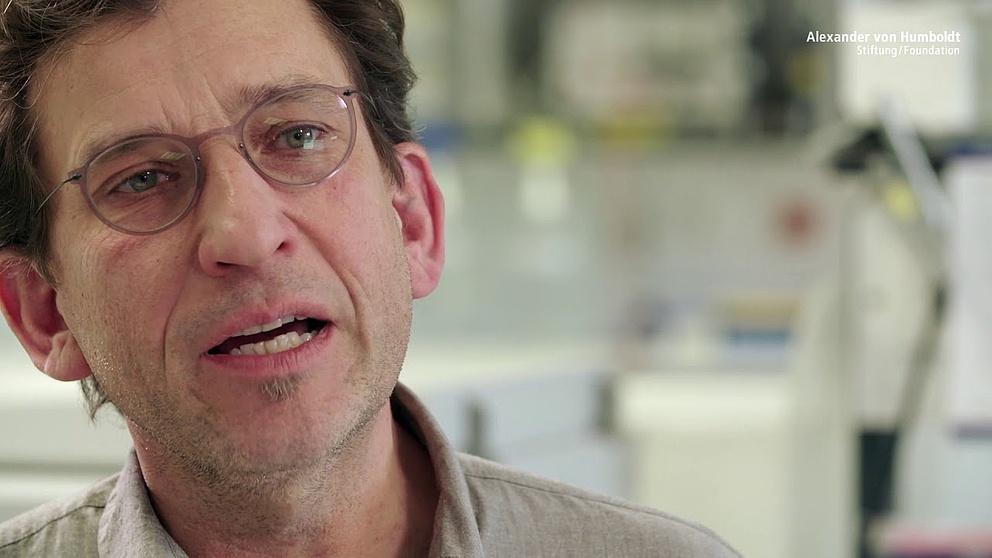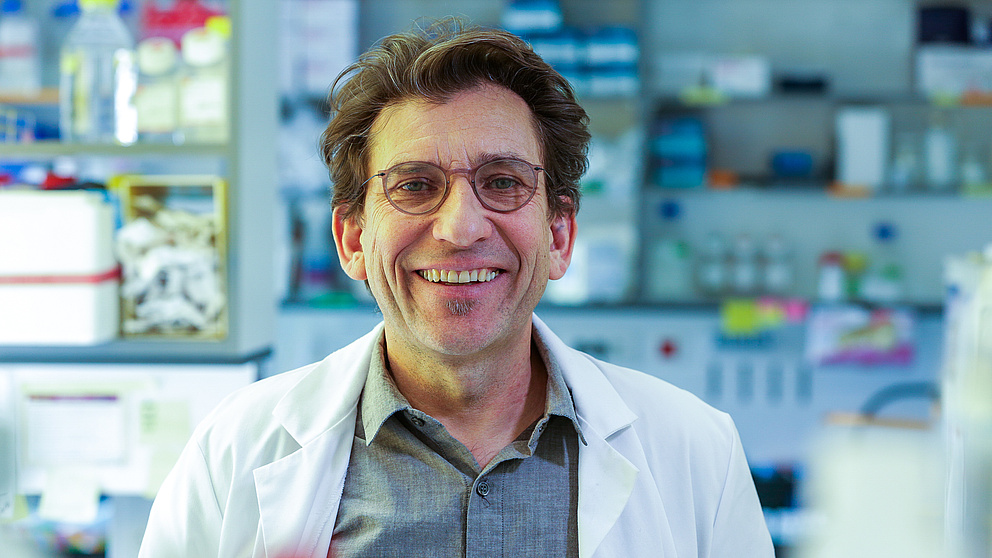Jump to the content
- {{#headlines}}
- {{title}} {{/headlines}}
Immunology / Stem cell biology
Our bodies are continually changing. In many organs – like the intestines, the skin or the blood – stem cells constantly create new cells to replace those that are lost. This is the way the tissue is preserved or regenerates after injury. Sieweke’s special field are the mechanisms by which cells of the immune system are generated and the role of these cells in preserving tissue function and regeneration. He has produced internationally recognised work that could help to develop new approaches to cellular therapy. It was Sieweke’s team, for example, who discovered an emergency mechanism which quickly responds to severe infections by supplying the body with new immune cells that fight the invading pathogens. These mechanisms might one day be used in bone marrow transplants to help rebuild the immune system more quickly. Sieweke’s research also showed that some mature immune cells, called macrophages, can divide indefinitely and keep up their numbers by using similar mechanisms as stem cells. The hope is that his research will help to activate these mechanisms when regeneration fails or to supply large numbers of macrophages for cellular therapies.
Brief bio
Born in Germany in 1963, Michael H. Sieweke is a director of research at the Centre National de la Recherche (CNRS) and a group leader at the Centre d’Immunologie de Marseille-Luminy, France. He moved there after completing his Habilitation in Heidelberg and research at the European Molecular Biology Laboratory, having studied at the University of Tübingen and taken a Ph.D. at the University of California, Berkeley, USA. He has also been a visiting scholar at the Australian Regenerative Medicine Institute in Melbourne, Australia, and an Einstein BIH visiting fellow at the Max-Delbrück Center in Berlin. Sieweke has been granted numerous fellowships and awards including the CNRS silver medal and an ERC advanced grant. He is a member of several scientific boards and associations such as the European molecular biology organization (EMBO). In April 2018 he took up his position as a Humboldt Professor at Technische Universität Dresden.

Kontakt
Presse, Kommunikation und Marketing
Tel.: +49 228 833-144
Fax: +49 228 833-441
presse[at]avh.de



